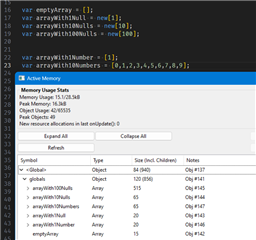This was unexpected. Now that I'm using dynamic arrays... using the "add" function to extend an array on-demand, I wanted to watch freeMemory to avoid issues.
So I tested the increment memory footprint of adding an integer -vs- a float. Both incremented the used memory by 8 bytes.
Did you think that would be the case?



